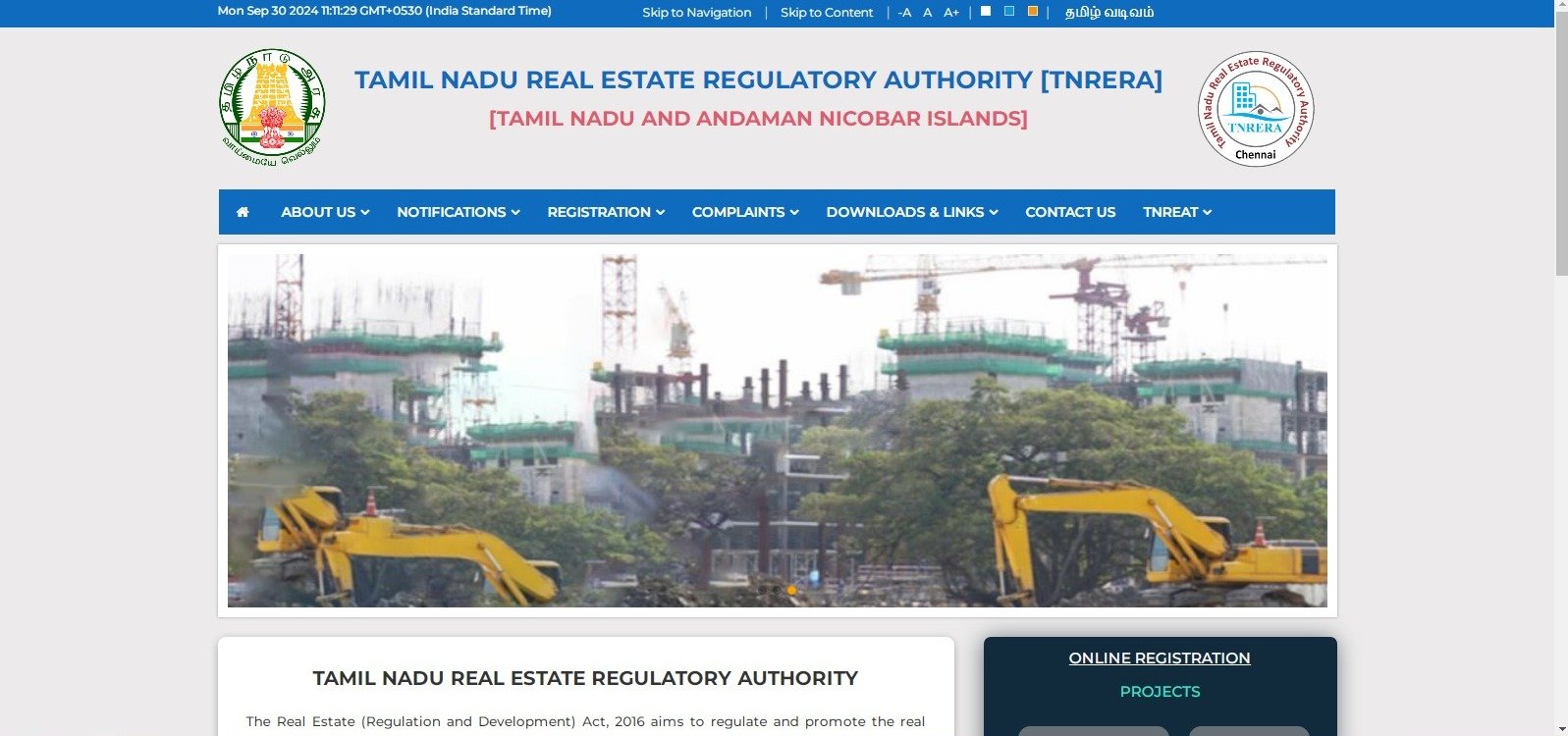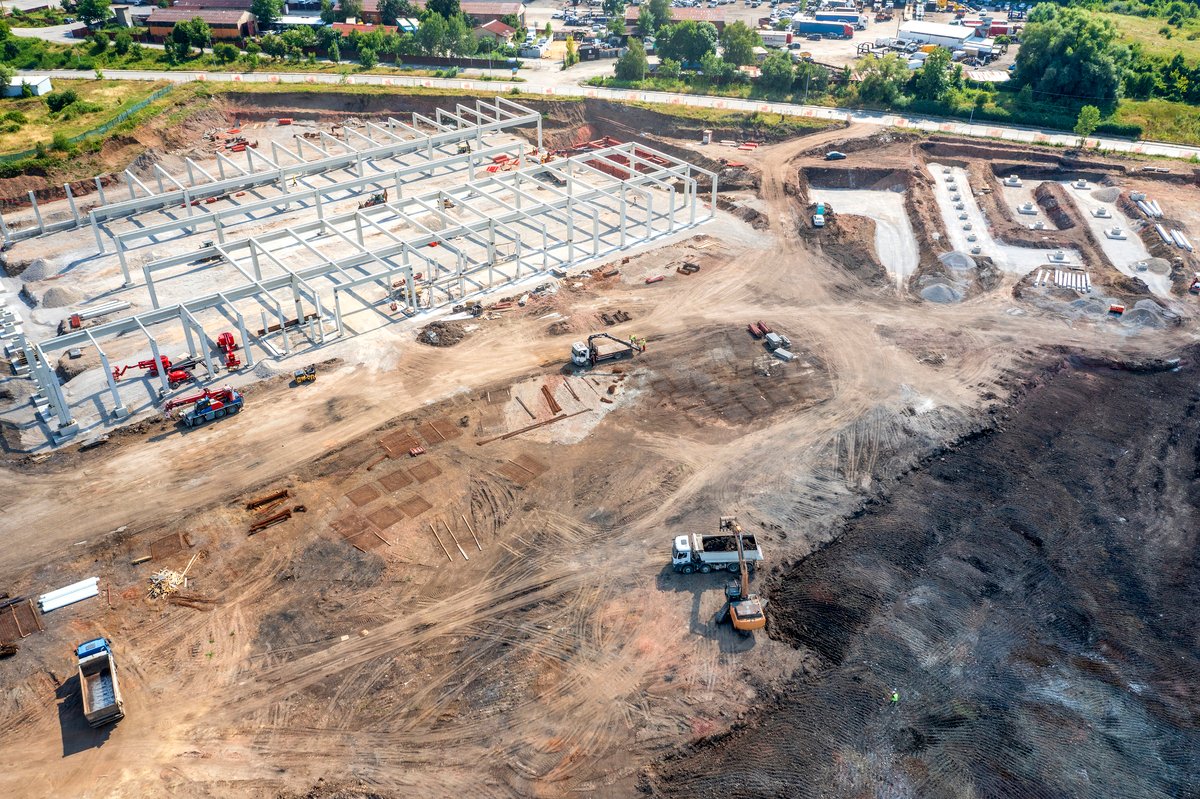What is RERA?
RERA Full form: The Real Estate (Regulation and Development) Act, 2016, commonly known as RERA, was introduced by the Indian Parliament to regulate the real estate sector and promote transparency and accountability. This act aims to safeguard the interests of homebuyers, ensuring they receive accurate information, timely project deliveries, and protection from unethical practices by developers.
RERA has had a significant impact on the Indian real estate sector by bringing much-needed standardization and regulation. It applies to both residential and commercial projects, requiring developers and real estate agents to register their projects with the respective state RERA authority before advertising or selling.
Key Objectives of RERA:
1.Transparency:
Developers must disclose all essential project details, such as plans, timelines, and financials, ensuring that buyers are well-informed before making decisions.
2.Accountability:
Developers are held accountable for completing projects on time. In case of delays, they are required to compensate buyers.
3.Consumer Protection:
RERA ensures that buyers are protected from fraudulent practices like project misrepresentation, delayed deliveries, and unauthorized alterations in the project.
4.Timely Completion:
One of the core goals of RERA is to eliminate delays by enforcing strict timelines ensuring that projects are completed as promised.
5.Standardization:
RERA brings uniformity to the real estate sector by regulating contracts, pricing, delivery schedules, and specifications such as what is RERA carpet area is.
Key Provisions of RERA
1.RERA Registration:
-
What is RERA registration? Every real estate project exceeding 500 square meters or involving more than eight units must be registered with the state’s RERA authority.
-
How to check RERA registration? Buyers can check the registration status of projects and real estate agents on the official RERA website of their respective states.
2.Clear Carpet Area Definition:
-
What is the RERA carpet area? RERA defines carpet area as the usable area inside the walls of an apartment, excluding balconies, terraces, and common areas. This standardized definition eliminates any confusion over terms like super built-up area.
-
How to calculate the RERA carpet area? Carpet area is calculated by measuring the total floor space within the walls, excluding external walls, service shafts, balconies, and open terraces.
3.Escrow Account for Project Funds:
-
Developers must deposit 70% of project funds collected from buyers into an escrow account, ensuring that the funds are used only for that specific project and not diverted elsewhere
4.No Alteration Without Consent:
-
Developers cannot make changes to the layout or design of a project without the consent of two-thirds of the homebuyers.
5.Grievance Redressal:
-
Homebuyers can lodge complaints with RERA if developers or agents violate the provisions of the act, ensuring swift and fair dispute resolution.
How to Check RERA Number and Approval
How to check RERA approval? Or RERA Approved : Buyers can easily verify a project’s status by searching for the RERA registration number on the respective state’s RERA website. Here’s a step-by-step guide:
1.Visit the State RERA Website:
Go to the official RERA website of your state (e.g., MahaRERA for Maharashtra or UPRERA for Uttar Pradesh).
2.How to check the RERA number:
Use the RERA registration number or the project name in the search function to access project details, including legal approvals, timelines, and status updates.
3.How to search for a project on the RERA website:
On the state-specific RERA website, navigate to the “Registered Projects” section. Enter project-specific details such as the name of the developer, project name, or RERA registration number.
What is RERA in Real Estate?
In real estate, RERA plays a pivotal role by regulating and organizing a sector that previously operated with limited oversight. The act ensures that developers provide transparent project details and meet deadlines, protecting buyers from delays and fraud. RERA has also introduced uniform standards for defining carpet areas, project timelines, and financial practices.
By promoting these values, RERA has instilled confidence in homebuyers, reducing the instances of disputes and ensuring the smooth execution of real estate projects across India.
Steps for RERA Registration:
1.Application Submission:
Developers must submit detailed project plans, including layout approvals, land titles, and construction timelines, to the respective state’s RERA authority.
2.Upload Documents:
All project-related documents, including financial details, must be uploaded to the RERA website for public access.
3.RERA Approval / RERA Approved:
After verification, the RERA authority issues a unique RERA registration number, which must be displayed in all promotional materials.
4.Ongoing Updates:
Developers must regularly update the RERA authority on project progress.
State RERA Websites
Each Indian state has its own RERA authority and website. Buyers and developers can check project registrations, legal approvals, and updates through these websites. Examples include:
- MahaRERA (Maharashtra)
- UPRERA (Uttar Pradesh)
- Karnataka RERA
TNRERA / How to Check RERA Tamil Nadu
The Tamil Nadu Real Estate Regulatory Authority (TNRERA) regulates real estate projects in Tamil Nadu. The official website for Tamil Nadu RERA is www.rera.tn.gov.in. The platform offers services like project search, registration details, agent registration, and grievance redressal.
How to Check RERA Registration in Tamil Nadu:
Step 1

Visit the Tamil Nadu RERA Website: Go to www.rera.tn.gov.in.
Step 2
Search Projects: In the “Registered Projects” section, enter the project name, developer name, or RERA number to view the project’s status.
Step 3
Check Real Estate Agent Registration: Verify the registration status of real estate agents under the “Registered Agents” section.
Step 4
Submit Complaints: Buyers can file complaints through the website if they face issues like project delays or non-compliance.
Benefits of RERA for Homebuyers
1.Transparency:
Buyers can access complete project details, including how to check RERA registration and approvals, ensuring they are making informed decisions.
2.Timely Possession:
RERA ensures developers deliver projects on time, compensating buyers for delays.
3.Financial Protection:
Developers must maintain financial discipline by keeping 70% of project funds in an escrow account.
4.Clear Carpet Area:
Buyers can now understand what RERA carpet area is, ensuring they pay only for the usable space within their property.
5.Legal Safeguards:
Buyers can file complaints through RERA tribunals if they encounter any issues, such as unauthorized alterations or delayed deliveries.
Benefits of RERA for Developers
Additional Impacts of RERA: Ongoing Projects, Pricing, Affordable Housing, and Sustainability
1.RERA and Its Impact on Ongoing Projects
A critical aspect of RERA is its applicability to projects that were ongoing at the time of the act’s introduction. Developers with incomplete projects had to register them under RERA, ensuring transparency even for properties that were already being built. This move provided a level of security to buyers who had invested in under-construction properties but faced delays or discrepancies in project details. By making it mandatory for developers to update buyers about project progress, RERA offered a legal framework to safeguard the interests of buyers of such ongoing projects.
2.RERA and Builders’ Reputation
RERA has drastically shifted the dynamics in the real estate market by fostering a more trustworthy environment. Developers who comply with RERA regulations have seen an improvement in their market reputation. Buyers are more inclined to invest in projects that are RERA-registered, as these developers are perceived as more reliable and committed to timely project delivery. As a result, RERA has filtered out less credible developers, leaving space for more trustworthy and accountable builders to thrive in the real estate market.
3.Effect of RERA on Real Estate Prices
While RERA primarily focuses on transparency and accountability, it has also had an indirect influence on property prices. By requiring developers to disclose all costs and adhere to fair practices, buyers now have a clear understanding of what they are paying for. Hidden charges and sudden price escalations have been vastly reduced under RERA, making the cost structure more predictable and manageable. This transparency has made real estate investments less risky, helping buyers to feel more confident about their financial commitments.
4.RERA and Affordable Housing
In the context of affordable housing, RERA has played a pivotal role by making developers more accountable and transparent. The act has encouraged developers to focus on affordable housing projects, especially in urban areas, where there is a growing demand for low-cost homes. With stricter timelines and more precise definitions of deliverables, RERA has reduced the risk of delays and mismanagement in such projects, giving a boost to the government’s affordable housing initiatives.
5.Educational Campaigns for Buyers
To empower homebuyers, several states and real estate bodies have launched awareness campaigns on RERA. These campaigns aim to educate buyers about their rights under the act and how they can use tools like the RERA websites to verify project approvals, track project progress, and raise complaints if necessary. These initiatives ensure that buyers are informed about the legal framework that protects them, making the real estate market more transparent and buyer-friendly.
6.How RERA Promotes Sustainable Practices
In some states, RERA has also started promoting sustainable development by encouraging developers to adopt eco-friendly building practices. Developers who integrate green building techniques—such as energy-efficient designs, rainwater harvesting systems, and the use of sustainable materials—gain an edge by aligning their projects with the growing demand for environmentally responsible real estate. Buyers, too, are increasingly conscious of sustainability, and RERA-compliant developers who prioritize green practices stand to benefit from this shift in market preference.
Noah Infrastructure: Committed to RERA Compliance in Real Estate Projects
Noah Infrastructure – The best civil contractors in Chennai is fully committed to adhering to the guidelines set by the Real Estate (Regulation and Development) Act, 2016 (RERA), ensuring that all their projects align with the regulations to promote transparency, accountability, and customer trust.
By following RERA regulations, Noah Infrastructure guarantees that their real estate developments meet the highest standards of quality and compliance. Key aspects of their commitment include:
1.RERA-Registered Projects:
All of Noah Infrastructure’s projects are registered under RERA, ensuring buyers have access to complete project details, including timelines, layout plans, and financial information.
2.Clear and Transparent Dealings:
Our contractors in chennai, discloses accurate information about project progress and adheres to the standardized definition of carpet area as required by RERA, ensuring buyers are well-informed and understand exactly what they are paying for.
3.Timely Project Completion:
Following RERA guidelines, our construction company is committed to completing projects on time. In the rare case of delays, they comply with the requirement to compensate buyers, maintaining trust and credibility.
4.Escrow Account Management:
In line with RERA regulations, our construction company ensures that 70% of the project funds are deposited in a separate escrow account, guaranteeing that these funds are used exclusively for the intended project and preventing misuse of resources.
5.Consumer Protection:
Noah Infrastructure puts the buyer’s interests first, offering robust legal protections and ensuring that any alterations to project plans are done only with the consent of the required majority of homebuyers, as mandated by RERA.
Through strict adherence to RERA guidelines, Noah Infrastructure delivers projects that are not only high-quality but also legally secure, providing buyers with confidence and peace of mind in their real estate investments.
Conclusion
RERA has transformed the Indian real estate sector by promoting transparency, accountability, and fair practices, providing homebuyers with a safer and more transparent investment environment. By enforcing stricter regulations, RERA ensures that developers are held accountable, timelines are met, and buyers are empowered to make informed decisions.
With provisions addressing ongoing projects, sustainable practices, affordable housing, and the standardization of real estate practices, RERA has set a new benchmark in the industry. Buyers now have clarity on concepts like RERA carpet area, and with tools to check RERA registration and project approvals, they are protected from delays and fraudulent practices.
By visiting state-specific RERA websites, such as Tamil Nadu RERA at www.rera.tn.gov.in, both buyers and developers can ensure compliance with regulations, track project progress, and make secure investments. Overall, RERA continues to elevate the standards of the real estate market, making it more reliable and investor-friendly across India.

